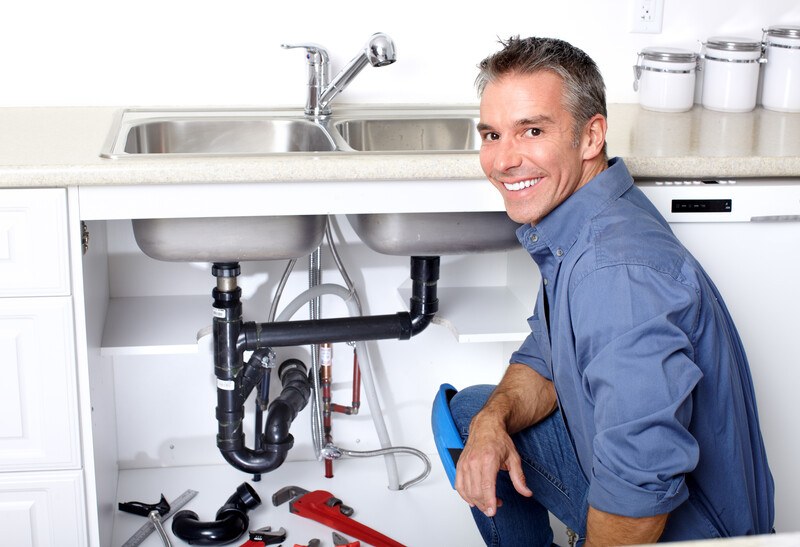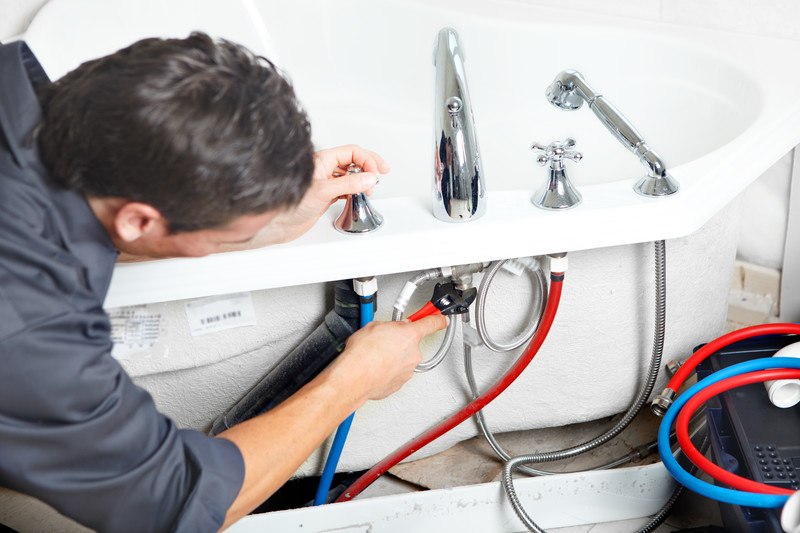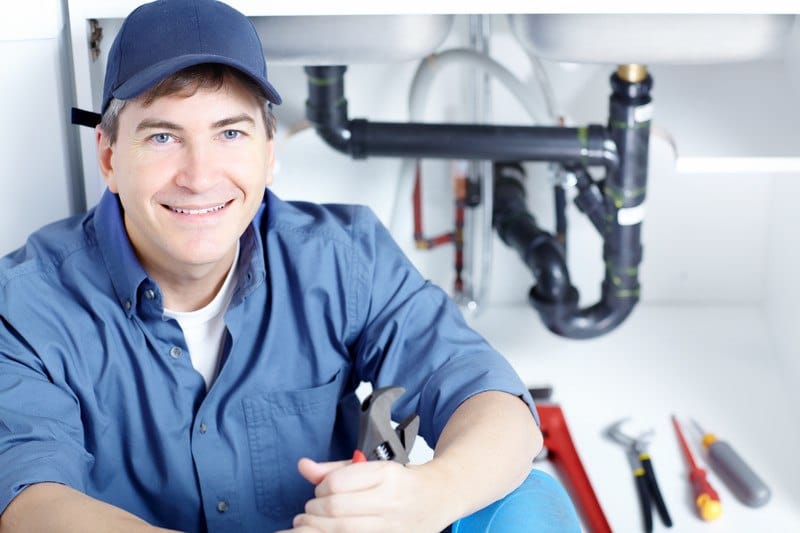
A few years ago, I had a new dishwasher installed in my kitchen. The man who installed it was a well-known plumber in my local area. He was a very by-the-book kind of guy who was meticulous about his work even while being very friendly.

Are You Ready To Work Your Ass Off to Earn Your Lifestyle?
Are you tired of the daily grind? With a laptop and an internet connection I built a small website to generate income, and my life completely changed. Let me show you exactly how I’ve been doing it for more than 13 years.
Since that initial meeting, I’ve seen this plumber show up a lot on local social media groups. He’s a favorite because he’s kind, caring, and careful. People like the work he does, and he likes helping make the community a better place.
While I don’t know the Myers-Briggs personality type for my friend, he does seem to fit well with the ISTJ profile, or the Inspectors. These people are calm, steady, and cautious. They check details, which is perfect for building jobs like plumbing or electrical work. Laying pipes, fitting pipes, and connecting properly to water sources or sewage drains has to be carefully managed, because mistakes could be costly, or sometimes even dangerous.
Many plumbers seem made for the types of jobs they do because they pay so much attention to details. It’s a good career path for many of them, too. There’s a lot of job stability and growth opportunities in the plumbing field. People with the ISTJ personality type could also make good home inspectors, police officers, and office managers.
Do Plumbers Make Good Money?

What’s The Median Salary For Plumbers?
According to the Bureau of Labor Statistics, plumbers, pipefitters, and steamfitters had a median income of $55,160 per year in 2019 or $26.52 per hour. The pay varied by the industries that plumbers worked in and in different areas of the country.
Plumbers working in the industry of communications equipment manufacturing had the highest annual average pay at $80,410. In the electric power generation industry, plumbers made an average of $78,590 per year, and in the ship and boat building industry, they made $52,490 per year.
The highest paying state in the nation for plumbers was Illinois, where the average annual income was $86,120. Illinois was followed by Alaska at $79,610, Minnesota at $74,700, and New Jersey at $74,360 per year. The highest paying area in the nation for plumbers was the Chicago area, where plumbers made an annual average of $89,470.
Contrast that with rural Kansas, where plumbers made an average of $45,980 per year, or the hill country region of Texas, where they made an annual average of $39,970. One of the lowest-paying areas in the nation for plumbers was the rural area around Piedmont, North Carolina, where plumbers made an average of $37,480.
According to PayScale, experience makes a difference in the pay range, too. New plumbers with 1-4 years of experience make an average of $15.22 per hour, while those with 5-9 years of experience earn an hourly average of $22.50. Plumbers with 10-19 years of experience earned around $24.78 per hour and late-career plumbers with more than 20 years of experience averaged $26 per hour.
There are a few ways that plumbers who want to make more money can increase their earning potential. They can move to a higher-paying area, like Illinois, but that comes with the added risk of the increased cost of living expenses. They could also get more experience or find a plumbing job in a higher paying industry, such as the communications equipment manufacturing industry mentioned above.
Plumbers could also consider moving into other careers, such as water transportation workers, who have an annual median pay of $57,330, or construction managers, who make a median pay of $95,260 per year.
How Do Plumbers Make Money?

A typical workday for a plumber lasts 8-10 hours, and work weeks are 4-5 days long. The schedule is flexible because plumbers must often work around times when residents will be home or water can be shut off. This means they sometimes work nights or evenings, and sometimes early in the mornings—especially if there’s an emergency such as a broken pipe.
Plumbers have a lot of variety in their work. Every project is different, but with similar elements, so plumbers are able to apply their knowledge and skills to solve a variety of plumbing problems.
Plumbers’ duties include evaluating problems and giving cost estimates to their customers. Once they’ve got the go-ahead, they need to be able to read the blueprints, follow state and local building codes, and determine the materials and equipment they need to get the job done.
Plumbers can do both installation and repair work. For example, a plumber might install pipes and fixtures in a new house that’s being built, or they might attend to broken pipes or clogged plumbing in older homes. They need to be able to troubleshoot problems when something goes wrong and be able to find the correct spot to work on. They also need to be able to test and inspect all types of plumbing work.
Most plumbers are eligible for overtime pay. There are also a few professional organizations that plumbers can join, including United Association, which is a union for plumbers, welders, fitters, and service techs. Other plumber associations include the American Backflow Prevention Association, the American Society of Sanitary Engineering, the American Supply Association, and the American Water Works Association.
Do Plumbers Have Good Job Satisfaction?
U.S. News ranked plumbing careers a six out of ten stars, for a variety of reasons. The salary itself ranked 5.9. Both the job market and the stress level ranked 6, and both future growth and work-life balance ranked 8.
This career also took spots in several of the top categories that U.S. News investigated. It placed #2 in the best construction jobs category, #6 in the category for the highest paying jobs without a degree, and #17 in the best jobs without a college degree. Plumbing also ranked #91 in the 100 best jobs category.
The happy results from this study were echoed in a survey run by PayScale, which ranked job satisfaction for plumbers as 3.82 out of 5 stars. Overall, plumbers who participated in this survey were highly satisfied with their jobs.
In another survey run by Owl Guru, 62% of plumbers surveyed said they were satisfied with their jobs. 63% of them also said that their jobs made a difference in the lives of other people, so they felt a lot of meaning and purpose in their work.
Pros:
- Plumbers have a nice median pay of more than $55,000 per year.
- A career in plumbing doesn’t require a college degree.
- Most plumbers feel highly satisfied with their jobs.
Cons:
- Plumbers may have to work nights, weekends, or early in the mornings, depending on the situation.
- Plumbing is physical, hands-on work that can be tiring and sometimes messy.
- Plumbers sometimes have to deal with angry or panicked customers as they try to solve emergency problems.
What Are The First Steps To Becoming A Plumber?
Most plumbers need a high school degree or its equivalent. After high school, plumbers can get basic training at a vocational school. These schools usually teach students about topics such as pipe system design, tool use, safety, and welding.
Once the basic education is complete, plumbers and people in similar careers must find an apprenticeship. The apprenticeships usually take 4-5 years, and this is where plumbers learn most of what they know. Their apprenticeship provides valuable on-the-job training that can include 2,000 hours of paid training plus some annual technical instruction. The technical instruction covers issues such as how to read blueprints, what the local building codes are, and safety concerns.
Plumbers who complete their apprenticeships are required to be licensed in most states. This includes a licensing exam. There are both basic licensing exams and master plumber licensing exams. Some states require plumbers to receive their master plumber license before they can get a license as a plumbing contractor.
Besides licensing, plumbers who want to specialize or increase their earning potential can get certifications in different areas, such as plumbing design.
Vocational schools are often the best place for plumbers to begin their education. Study.com lists Atlanta Technical College, Cleveland Community College, and Montana State University-Northern as the top three best plumbing schools in the United States. However, many local trade schools have great programs, and there are also some online programs that can be helpful. These include Penn Foster Career School and Ashworth College.
Apprenticeships can be found by participating in some of the unions and professional organizations, such as the United Association.

Do Plumbers Make Good Money?
Plumbers have flexible, full-time schedules. They’re often considered everyday heroes because they rescue people from uncomfortable situations such as broken pipes or clogged plumbing—but do they make good money?
The answer is yes, they do. Plumbers have an annual median pay of more than $55,000, and they don’t need a college degree to get it. In addition, plumbers have an overall high job satisfaction score in several categories, including work-life balance and the ability to find meaning and purpose in their careers.

Nathaniell
What's up ladies and dudes! Great to finally meet you, and I hope you enjoyed this post. My name is Nathaniell and I'm the owner of One More Cup of Coffee. I started my first online business in 2010 promoting computer software and now I help newbies start their own businesses. Sign up for my #1 recommended training course and learn how to start your business for FREE!

 Top Ten Political Affiliate Programs For The Best Affiliate Campaigns
Top Ten Political Affiliate Programs For The Best Affiliate Campaigns
Leave a Reply